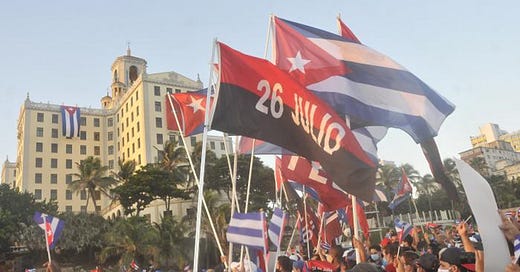Cuba defeats US interventionist plan
The people show that they are the revolutionary people of Fidel
The U.S. media campaign, and the organization of disruptions on July 11 by paid political operatives in Cuba, were intended to take advantage of dissatisfactions among the people, and to stir emotions in opposition to the government. The plan not only failed, it backfired. The emotions that it fueled were those of the revolutionaries. Emotions of disgust toward the people who engaged in what was widely considered as despicable conduct, like looting stores and attacking persons. Cubans are accustomed to seeing videos of such conduct in other nations, but many were shocked to see such comportment in Cuba. And as a result, the great majority felt anger and even contempt for persons who were conducting themselves in such a manner, and doing so in the paid service of a foreign power that has for decades announced its intention to derail the sovereign road that the nation has taken. And the events stoked emotions of pride in their revolution and its principled and dignified quest for …



